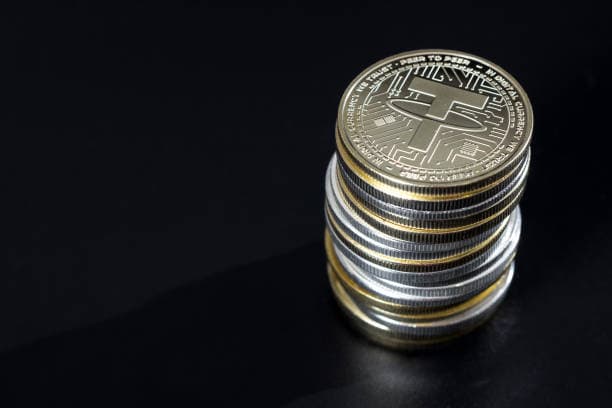Bitcoin Wallet Backup Method: Secure Backup Data
When you start investing with Bitcoin or other cryptocurrencies, keeping your wallet and assets safe is a top priority. One of the most important things you can do to protect yourself is to make a secure backup of your Bitcoin wallet. Backing up your wallet data can help you avoid the risk of not being able to retrieve your assets due to computer failure, lost cell phone, or other unforeseen circumstances. Today, we'll discuss how to properly back up your Bitcoin wallet data and keep your assets safe. Whether you are a novice or an experienced user, this article will provide you with practical backup tips and cautions.

Why is a Bitcoin wallet backup so important?
The importance of having a backup of your Bitcoin wallet cannot be overlooked. As a cryptocurrency holder, you have a cryptographic private key, not a physical wallet. If your private key is lost or damaged, your Bitcoin can never be recovered. Therefore, backing up your wallet data is the first step in protecting your assets. Whether you use a software wallet, a hardware wallet, or a paper wallet, backing up your data allows you to retrieve your encrypted assets in the event of an accident.
Choice of backup method
There are a variety of Bitcoin wallet backup methods on the market today, ranging from digital to physical backups. For most people, digital backups (e.g. cloud storage, USB drives, etc.) are relatively simple and convenient, but there is a risk of being hacked or experiencing data loss. In contrast, physical backups (such as paper wallets or hardware wallets) offer a higher level of security, especially when not relying on the Internet, but they also require a more careful approach to storage.
Common Bitcoin Wallet Backup Methods
To perform a secure Bitcoin wallet backup, you first need to understand several common backup methods. Below are some common backup methods, you can choose the most suitable one according to your needs.
1. Back up through the aids
A Seed Phrase is a security code consisting of 12, 18, or 24 words that is the key to recovering your Bitcoin wallet. When you create a Bitcoin wallet, it generates a string of Seed Phrases that you need to keep safe. These words can help you recover your cryptocurrency if your wallet is lost or your device malfunctions.
When backing up your aide-memoire, you should avoid storing it on the Internet, especially in an unencrypted file. It is recommended that you write your memos on paper or engrave them on metal plates and store them in a safe place, such as a safe deposit box. In case of natural disasters or other accidents, these metal plates are relatively less prone to damage and can protect your digital assets.
2. Backup with a hardware wallet
A hard wallet is a physical device designed to store cryptocurrency private keys, which not only stores digital assets such as Bitcoin, but also provides additional security. The advantage of a hard wallet is that it is offline, greatly reducing the risk of hacking.
Many hardware wallets will offer the ability to back up their mnemonics and will require the user to keep these mnemonics in a safe place. Common brands of hardware wallets include Ledger and Trezor.

3. Paper wallet backup
A paper wallet is a private and public key to Bitcoin printed on paper so you can have a physical backup. The advantage of a paper wallet is that it is not vulnerable to cyberattacks, but the disadvantage is that if the paper is damaged or lost, the Bitcoins cannot be recovered. Therefore, you need to be careful when storing your wallet, and it's best to keep it in a waterproof, fireproof place.
Best Practices for Backing Up Your Bitcoin Wallet
When performing a Bitcoin wallet backup, in addition to choosing a suitable backup method, you should follow some best practices to ensure the security of your backup.
1. Do not save backups in a single location
Storing backups in a single location is a high-risk practice because if that location is damaged or stolen, the backups will be completely lost. It is advisable to store the backups in different places, such as a safe deposit box, different places in your home, or even in the hands of a trusted family member or friend. This will minimize the risk of losing all your assets due to a single failure.
2. Avoid unencrypted backups for cloud storage
While cloud storage is a convenient option, storing unencrypted Bitcoin wallet backups in the cloud is extremely dangerous. Hackers can easily break into an unencrypted cloud account and gain access to your helpers or private keys. Therefore, if you must use cloud storage, be sure to encrypt all backup files and enable double authentication.
3. Regularly checking the integrity of backups
Once the backup is complete, remember to check the integrity of the backup periodically. This includes checking to see that the helpers are legible, that the hardware wallet is functioning properly, and that there are no signs of damage to the paper wallet. Performing these checks on a regular basis will allow you to identify problems and make corrections in a timely manner.
How to Restore Bitcoin Wallet?
In the unfortunate event that you lose your device or need to reinstall your wallet application, the process of recovering your Bitcoin wallet is not complicated. All you need to do is to have a pre-backed up token or hardware wallet and you can easily recover your crypto assets.
1. Use of auxiliary words to restore
If you are using a software wallet, simply download the appropriate application, select the "Restore Wallet" option, and enter the auxiliary words you previously backed up. The wallet application will automatically use these words to generate the corresponding private key and restore your Bitcoin or other cryptocurrency.
2. Use of Hardware Wallet Recovery
If you're using a hardware wallet, it usually offers a similar recovery feature. Simply insert your hardware wallet into your computer or cell phone, select "Recover Wallet", enter your passphrase, and you can easily recover your assets.
Frequently Asked Questions Q&A
1. Can I back up my Bitcoin wallet in an email?
It is not recommended to store Bitcoin wallet backups in email, as email accounts can be hacked and your assets lost. Encrypted backups to offline devices or paper wallets are recommended.
2. what should I do if I lose my Bitcoin wallet's mnemonic?
If you lose the token, it's basically impossible to recover your Bitcoin. That's why it's so important to back up your token and keep it safe. You might consider using a hardware wallet for extra protection of your assets.
3. I have a problem with my hard wallet, how do I restore my assets?
Even if a hardware wallet breaks, as long as you have a backup helper, you can use another supported hardware wallet or software wallet to restore your assets.














